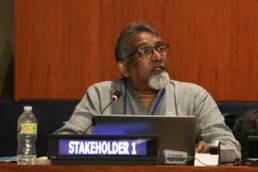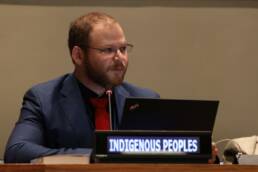High Level Political Forum
New York
5 July 2022
Session on “Financing a robust crisis response and investing in the SDGs”
Intervention by Lead Discussant Chenai Mukumba, Tax Justice Network Africa, on behalf of the Civil Society FfD Group
“A UN tax convention would: 1) Promote democratic reforms of the international taxation framework by allowing for genuinely inclusive consultations are to ensure that the interests of developing nations represented; 2) Initiate the process of harmonizing international tax agreements to eliminate their bias towards developed countries to the detriment of developing countries; and 3) Foster greater collaboration between governments on tax matters in a fair, transparent and accountable manner. This would also enhance greater coordination and coherence between institutions and ultimately have tax issues administered under one framework.”
Intervention by Paola Simonetti, Director, Equality Department, International Trade Union Confederation (ITUC), on behalf of the Workers and Trade Unions Major Groups
“Financing SDGs means to support countries capacity for a just development different from current models that are impeding progress and equality for working women and men globally. The UN Accelerator on Jobs and Social protection is a concreate step forward in the right direction and we call on governments to support its implementation.”
Intervention by Carola Mejia, Latindadd, on behalf of the Civil Society FfD Group
“We are definitely not facing a normal situation; therefore, we expect the international community to act according to these challenges, promoting real and systemic solutions, prioritizing finance support for the most affected countries, with a special focus on people and not profit. ODA commitments should be fulfilled and increased, and we don’t want you to promote more debt as a solution. Indeed, it is a big problem undermining our development for several years, as many developing countries are already allocating more resources for debt service than to public health care, education, social security, or climate action.”
Photo credit: IISD ENB – Kiara Worth




